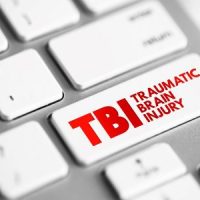The Signs and Severity of Traumatic Brain Injuries

Our brains have an interesting contradiction. On the one hand, they are probably our most important organs—the core of who we are as people.
On the other hand, when our brains are injured, we may not immediately feel pain. In fact, at first, we may not even recognize anything is wrong at all. And making things even worse or more difficult is the fact that in a typical hospital emergency room, after an accident, hospital staff may spend little or no time looking for or diagnosing brain injuries.
The Brain Bleed
There are really two kinds of traumatic brain injuries (TBIs). One is the more acute, immediate—and deadly injury: the brain bleed.
Despite the fact a brain bleed can be deadly, it also can be slow to develop. That means that the victim (or loved ones looking over the victim) may not even know there has been a brain injury at all. In fact, the victim’s mood, attitude, and affect, may not even change.
But what nobody knows is that the brain is slowly bleeding. The bleed is sometimes so small and slow, that hospital emergency room scans immediately after the accident, may not even show the bleed, leading the victim and others to think the victim is fine.
But at some point that slow bleed fills the cavity between the brain and the skull, putting so much pressure on the brain that death is the result.
This is why after any kind of accident, friends or family should stay with a victim for about a day, to monitor the victim for any changes in mood or attitude, or if the victim complains of headaches. Anything abnormal related to the head or mood, should immediately be checked out by a doctor—even if an emergency room previously said everything was OK.
Long Term Brain Injuries
Longer term TBI is often harder to detect, because it can be misinterpreted as depression or anxiety or PTSD following an accident. What the victim and friends or family doesn’t know, is that the brain has actually been damaged.
Typical symptoms of TBI include things like anxiety, memory loss, forgetfulness, confusion, drastic mood or attitude changes that aren’t consistent with the victim’s normal affect, sudden anger or anxiety.
Absent therapy or medical attention, these symptoms will never go away (and sometimes, may not even go away with medical intervention). These are not just “mood changes” or temporary states; they are symptoms of a larger, more serious injury to the brain itself.
Even the victim him or herself may not realize any changes; the same injury to the brain that is causing these behavioral or cognitive changes, may also lead the victim to believe that he or she is fine, or that the victim is “just depressed.”
Get the help you need if you have sustained a brain injury after an accident. That includes medical attention and legal help. Call the Knoxville car accident attorneys at Fox Farley Willis & Burnette, PLLC, for help today.
Sources:
ninds.nih.gov/health-information/disorders/traumatic-brain-injury#:~:text=Traumatic%20brain%20injury%20(TBI)%2C,skull%20and%20enters%20brain%20tissue.
cdc.gov/traumaticbraininjury/index.html











